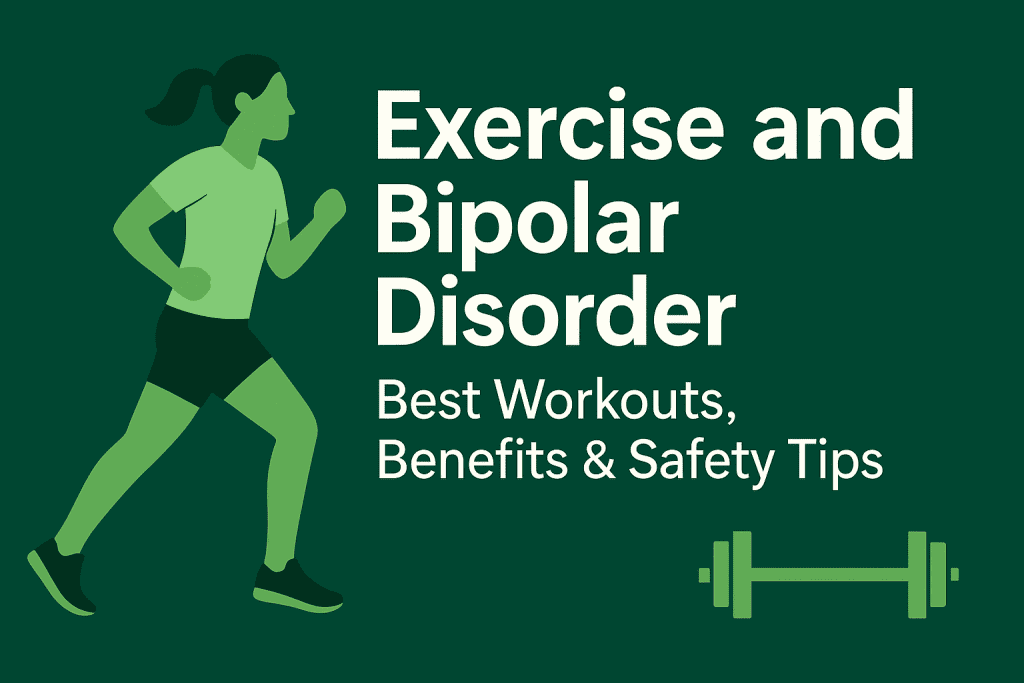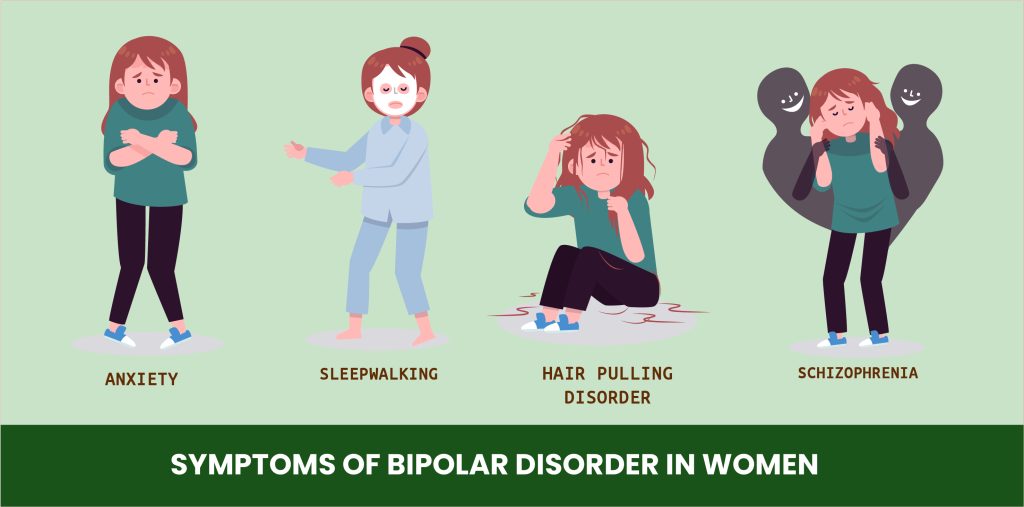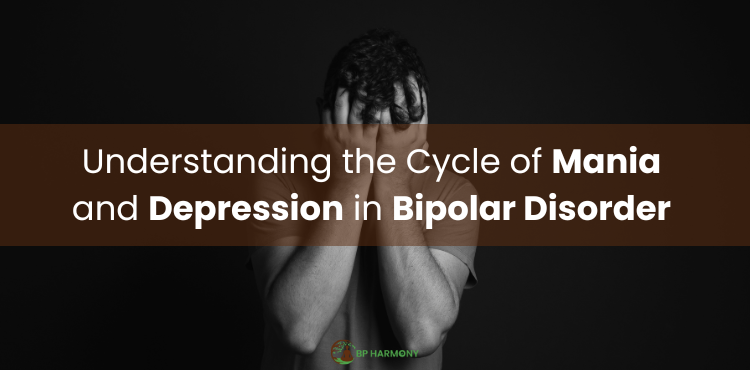Exercise and Bipolar Disorder: Best Workouts, Benefits & Safety Tips
The Role of Exercise in Managing Bipolar Disorder “Low intensity, Long hours” is our starting principle for advice related to exercise and bipolar disorder. But, can exercise help bipolar disorder individuals? When we think about managing bipolar disorder, conventional advice begins with pharmaceutical medication and psychotherapy. However, exercise, or what we mean by “movement” at BP Harmony, is a vital activity to regain balance and plays a crucial role in optimizing the body for healing and long-term recovery. Let’s dive into five ways exercise can make a real difference for those seeking reprieve from the extreme disruptions of bipolar disorder. This blog will also answer a common question: does exercise help bipolar disorder? Let’s jump straight into it… Spoiler alert: the benefits of exercise for bipolar disorder are many! We will talk about exercise as complementary treatment for bipolar disorder along with medication as well as more tips for exercising with bipolar disorder. For more, check out my book The Five Pillars of Bipolar Recovery, book and masterclass. You can also check out my free resources. Mood Regulation: Nature’s Antidepressant Can exercise improve mood swings in bipolar disorder? In previous posts, we have covered how the chaos of the mind leads to mood swings. Exercise is a great way to silence racing, negative thought patterns by focusing on the goal of completing your workout. Exercise acts as a stabilizer because it dislodges a person from their problems by focusing on breathing, feeling the “burn,” and becoming goal-oriented. That’s right, you can exercise for mood regulation! How does exercise help people with bipolar disorder? During exercise, the body primarily releases beta-endorphins. These are part of the body’s natural pain-relief system and contribute to feeling good, where people experience feelings of euphoria, reduced pain, and general well-being after moving their bodies. The key to keep in mind with bipolar is to not elevate the mood too much or else one can fall into hypomania or even mania. This is why at BP Harmony we advise and teach “low intensity” forms of movement like walking, Yoga, and gardening. Exercise also releases neuro-chemicals such as dopamine, serotonin, and norepinephrine, contributing to improved mood and cognitive function. What then are the best exercise for bipolar disorder? Does Exercise Improve Sleep in Bipolar Disorder? The “long hours” piece of the BP Harmony exercise model tires the body and prepares it for sleep. Sleep is the most important pillar to erect and maintain for bipolar recovery. Poor sleep is very common and often an essential problem that needs to be addressed for bipolar patients. You definitely want to exercise for sleep improvement. The key is to exercise early in the day to elevate mood enough to get through one’s daily responsibilities and long enough so that one feels tired at bedtime. When one engages in regular physical activity, the body naturally tires, making it easier to fall asleep and, more importantly, stay asleep. This improved sleep quality helps regulate the body’s internal clock, allowing for more restful nights and, consequently, more balanced days. This is easier said than done, but regular exercise will help in (1) falling asleep faster, (2) staying asleep throughout the night, and (3) feeling rested and alert in the morning due to deep, rejuvenating sleep. Taming Anxiety and Stress Can exercise reduce depression and stress in bipolar disorder? For people with bipolar, stress and anxiety are more than just temporary feelings — one can be stuck in these intense emotions for months or even years with little relenting. The beauty of exercise lies in its ability to jettison stress off of the body and prevent it from returning by promoting the beneficial chemicals mentioned in the previous sections. Yup, you can do exercise for depression and stress. When one moves their body, whether through strength training, jogging, or a peaceful swim, the muscles release tension, so the mind begins to relax. This stress relief is not just physical; it’s emotional and mental. In the manic phase, there is an excess of energy that needs to be released otherwise it manifests in disruptive thought patterns and harmful behaviors. Does Exercise Improve Cognitive Function in Bipolar Disorder? Once the body purges stress and anxiety, gets regular doses of beneficial endorphins, and receives quality sleep, the brain is able to function at an optimal level (provided the individual is fueling their body with nourishing foods). You better believe that exercise and cognitive function improves bipolar disorder symptoms. Many people living with bipolar disorder face challenges with memory and concentration, sometimes due to the condition itself, or as a side effect of medication. Regular physical activity will sharpen one’s cognitive function and keep the mind alert. One could also take a look into mental exercises for bipolar disorder. Aerobic exercises like cycling, brisk walking, or even dancing have been shown to stimulate brain function. It’s as if you’re not only strengthening your muscles but also exercising your mind, making it more resilient in the face of cognitive challenges. What Practical Tips can help people with Bipolar Disorder Stay Consistent with Exercise? Each workout, no matter how small, becomes a victory. Whether it’s lifting heavier weights, running a bit further, or simply showing up for a session, these achievements build self-esteem and foster a sense of accomplishment, which helps the individual move toward a goal oriented mindset. When committing to a bipolar disorder exercise, it is not just about improving physical health—it’s about restoring confidence and proving to oneself that they have the power to influence their own well-being. bipolar can feel like a massive loss in agency, and regaining a sense of control with exercise can play a huge role in reclaiming a self of ownership in one’s life. What are the best exercises for bipolar disorder? Despite knowing these benefits, it can be challenging figuring out where to start and finding the motivation to stay consistent. Here are a few tips to bear in mind when researching exercises for bipolar disorder: Start Small: Begin with simple activities like walking, yoga, or swimming,




